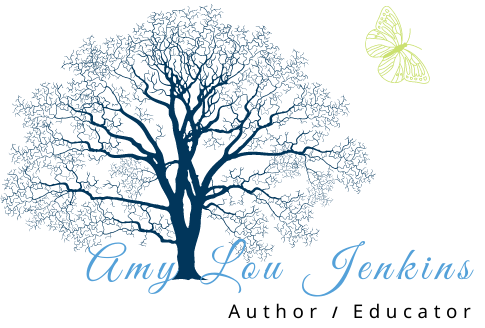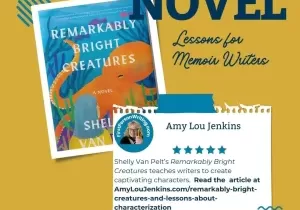
The First Line of Ten Successful Memoirs-
Need some inspiration to find the opening to your memoir? Memoir beginnings are the first and sometimes last step a reader takes into the world of a book. Take a look at some first lines from successful memoirs. Each, in their way, begins the narrative journey in place and or time and hooks the reader with the journey. Every memoir is a before-and-after story and each memoir sets this up from the beginning.
Memoir Beginnings
(Click gold book titles to access Amazon affiliate links.)
-
Born a Crime: Stories from a South African Childhood by Trevor Noah
I was born a crime. -
 This opening immediately grabs the reader’s attention with its provocative statement. Noah’s memoir explores growing up as a mixed-race child in apartheid South Africa and this opening highlights the absurdity and injustice of the racial laws that made his existence illegal. He begins with a fact, and his childhood and life are colored by this fact. Hooked? Yes.
This opening immediately grabs the reader’s attention with its provocative statement. Noah’s memoir explores growing up as a mixed-race child in apartheid South Africa and this opening highlights the absurdity and injustice of the racial laws that made his existence illegal. He begins with a fact, and his childhood and life are colored by this fact. Hooked? Yes.
2. An Unquiet Mind: A Memoir of Moods and Madness by Kay Redfield Jamison
On a hot, still morning on the last day of July in 1991, I got out of the car accompanied by my best friend and my boyfriend and walked up the path to Broadmoor Hospital. -
This opening creates an eerie and mysterious tone that sets the stage for Jamison’s candid exploration of her life with bipolar disorder. The mention of Broadmoor Hospital, a high-security psychiatric facility in England, immediately suggests that this is a story of mental illness and adds to the sense of foreboding. The author begins in a very specific time, while the uphill walk is a physical reality, it’s also foreshadowing.
3. Dust Tracks on a Road by Zora Neale Hurston
I have been in Sorrow’s kitchen and licked out all the pots. -
This opening is both poetic and blunt in its depiction of hardship. Hurston’s memoir is a celebration of her life and her African American heritage, but it also includes stories of poverty, racism, and discrimination. This opening sets the tone for the book, acknowledging the struggles she has faced while also asserting her resilience. In one sentence, readers see the aptly used metaphor and the self-disclosure. This memoir is going deep, we can tell from the get-go.
4. The Glass Castle by Jeanette Walls
The day my father left in his yellow Fairlane for California was the saddest day of my childhood. -
This poignant and personal opening immediately draws the reader into Walls’ story. The Glass Castle is a memoir of Walls’ unconventional childhood, which included living in poverty and estrangement. The emotional impact of her father leaving is palpable in this opening sentence, setting the stage for the turbulent and unpredictable life that follows.
5. The Rules Do Not Apply by Ariel Levy
The summer after my father’s suicide, my mother uprooted me and my two younger brothers from our home in Connecticut and moved us to California. -
This opening is haunting and sets the stage for the memoir’s exploration of grief and loss. Levy’s father’s suicide is a pivotal event that colors her life and her outlook. The mention of the move to California adds to the sense of disorientation and upheaval that she experiences. This author is setting up her contract with the reader very quickly. The story begins now.|
6. The Color of Water by James McBride
I was six years old when I saw my first Elvis Presley movie. -
This opening captures the reader’s attention with its clear and vivid imagery. The mention of Elvis Presley concisely connects the reader to a specific time and place, while also suggesting themes of identity and self-discovery that are explored throughout the memoir. There’s an undercurrent here too. Did Elvis steal culture or celebrate it? James McBride was also caught in paradigms of uncertainty during his childhood with his white Jewish Mother. The subtext in this opening is subtle, yet he quickly builds the tensions as his story proceeds.
7. When Things Fall Apart: Heart Advice for Difficult Times by Pema Chödrön
In my late thirties, my anxiety and insomnia had become so pronounced that I started trying to meditate. -
This opening is effective in its simplicity and honesty. Chödrön’s memoir / self-help book guides readers to overcome fear and suffering through Buddhist principles, and this opening sets the stage by acknowledging her struggles with anxiety and insomnia. It also highlights the universality of these experiences, inviting readers to connect with her story on a personal level.
8. Educated: A Memoir by Tara Westover
On the night I was born, my father was 54 years old, and my mother was 19. -
This opening is striking in its contrast and hints at the unusual circumstances of Westover’s upbringing. The large age gap between her parents is significant, as it foreshadows the dysfunction and isolation of her childhood. Get ready for the unconventional, it's coming fast and strong. Westover creates a sense of OMG suspense, making the reader eager to learn more about her story.
9. The Year of Magical Thinking by Joan Didion
 I am on the subway, and I am writing to say that this is not the worst thing that’s happened. -
I am on the subway, and I am writing to say that this is not the worst thing that’s happened. -
This opening is memorable in its emotional impact and immediacy. Didion’s memoir is a meditation on grief and loss, and this beginning sentence captures the rawness of her pain. The mention of the subway adds to the sense of chaos and disorientation, while also grounding the reader in a specific moment in time. Didion isn’t known for dramatic flash, she’s known for candor and insight. And she delivers in each sentence.
10. The Liars’ Club by Mary Karr
The summer I turned fourteen, my mother drove me into the mountains of North Carolina to a camp for smart kids. -
This opening is effective in its specificity and its sense of place. The mention of the North Carolina mountains immediately conjures up imagery and sets the stage for Karr’s memoir, which explores her tumultuous childhood in rural Texas. The mention of the camp for smart kids also hints at Karr’s intelligence and potential, while also underscoring the sense of otherness that she often feels.
Memoir beginnings may come at the last stages of writing
The opening line of a memoir sets the tone and establishes the voice of the writer. As a result, writers must consider several technical details as they decide upon their opening line.
One essential technical detail is to grab the reader's attention. The opening line should be intriguing and captivating. The reader should feel, "this is a world I wasn't to enter." The writer must also consider the audience they are targeting, their purpose and the theme they want to convey through their memoir.
According to Stephen King, "An opening line should invite the reader to begin the story. It should say: Listen. Come in here. You want to know about this."
Another essential technical detail to consider is to create an emotional connection with the reader. The writer must evoke emotions that will resonate with the reader and draw them in. They can do this by using sensory details, personal anecdotes, or by posing a question that the reader wishes to explore.
Finally, writers must consider the pacing of the opening line. It should set the pace for the rest of the memoir, whether it is fast-paced, slow-paced, or a mix of both.
In conclusion, the opening line of a memoir requires significant consideration of technical details that can affect the reader's experience. The writer must aim to grab the reader's attention, create an emotional connection, and set the pacing for the rest of the memoir.
A writer may not have the exact opening lines until late in the drafting and editing process. As Anne Lamott said, "The first draft is the child's draft, where you let it all pour out and then let it romp all over the place, knowing that no one is going to see it and that you can shape it later."











